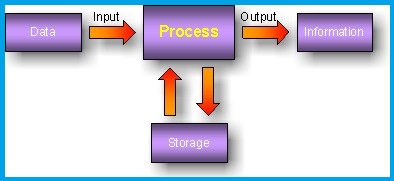Computers can work very fast. It takes only few seconds for calculations that we take hours to complete. This allows you to save time and complete work in a more efficient manner.
The degree of accuracy of computers is very high and every calculation is performed with the same accuracy. The accuracy level is determined on the basis of design of computer. The errors in information are due to inaccurate data.
A computer is free from tiredness, lack of concentration, fatigue, etc. As a result, it can work for hours. If millions of calculations are to be performed, a computer will perform every calculation with the same accuracy.
This means that computers have the capacity to perform completely different type of work. You may use your computer to prepare payroll slips, inventory management, to prepare electric bills, etc.
Computers have the power to store huge amounts of information or data. Any information can be stored and recalled as long as you require it, for any numbers of years. It depends entirely upon you how much data you want to store in a computer and when to lose or retrieve these data.
Computers cannot do any work without instruction from the user. It performs the instructions at tremendous speed and with accuracy. Therefore, it is you to decide what you want to do and in what sequence. So a computer cannot make its own decision as you can.
The Computer has an in-built memory where it can store a large amount of data. You can also store data in secondary storage devices such as floppies, which can be kept outside your computer and can be carried to other computers.
The information processing cycle can be defined as the steps in which information is processed. These steps are input, processing, storage and output. These processes work hand -in-hand and repeat over and over in order to process information in a way that is readable to us.These steps are:

CONTENTS